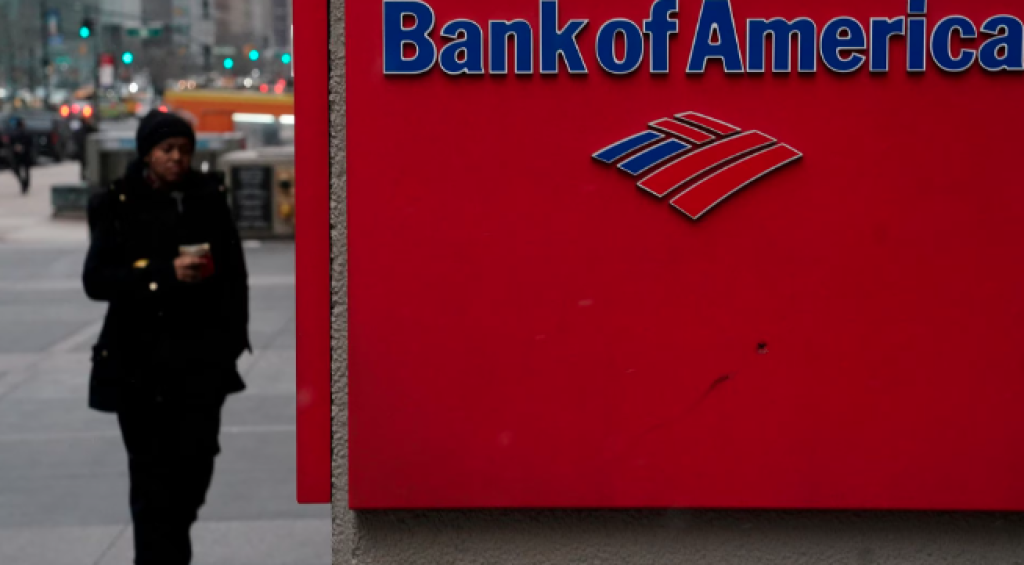Bank of America Corp’s first-quarter profit beat analysts’ estimates as it collected hefty interest payments from customers, while its bond traders had their best quarter in a decade.
Rival banking giants JPMorgan Chase and Co and Citigroup Inc also reaped windfalls from higher interest payments in the first quarter, while setting aside billions of dollars to prepare for a worsening economy.
“Results were strong despite a challenging economic environment with market and banking sector volatility,” Bank of America Chief Financial Officer Alastair Borthwick said on Tuesday.
The company’s shares were down marginally in choppy trading, erasing earlier gains.
The collapse of two U.S. lenders in March shook the industry and exacerbated concerns about a looming recession. The crisis battered bank stocks and prompted spooked depositors to move their cash to larger institutions.
“Our research team continues to predict a shallow recession that will occur beginning in the third quarter of 2023 … if we look at our consumer behavior, payments by consumer continue to drive the U.S. economy,” BofA Chief Executive Brian Moynihan said, reiterating an earlier view.
The second-largest U.S. lender reported a profit of 94 cents in the three months ended March 31, compared with estimates of 82 cents per share, according to Refinitiv IBES data.
“Bank of America had a strong Q1 as higher interest rates continued to boost its net interest margin despite rising deposit costs,” David Fanger, senior vice president at Moody’s Investors Service, said.
“This, together with strong sales and trading revenues and the seventh consecutive quarter of positive operating leverage, more than offset the adverse impact of modest deposit outflows.”
Total deposits at BofA fell 1% to $1.91 trillion in the first quarter, compared with the fourth quarter, as customers who were unsatisfied with the deposit rates offered by lenders moved their cash into money market funds to chase greater yields.

Traders in fixed income, currencies and commodities stayed in high demand, bringing in $3.5 billion in revenue for BofA, up 27% from a year earlier.
Economists expect the U.S. economy to slow in the second half of the year as the Federal Reserve raises interest rates to tame inflation, prompting BofA to build $124 million in reserves in the first quarter, compared with a release of $362 million last year.
Still, combined debit and credit cards spending was resilient, rising 6% in the quarter, according to BofA.
Consumer debit and credit spending was still robust given strong U.S. employment and wage growth, Borthwick said, despite concerns about a looming recession.
“Consumers are in great shape in terms of credit quality by any historical standard.”
Revenue at the company’s consumer banking unit rose 21% to $10.7 billion in the first quarter.
BofA’s net interest income (NII), which reflects how much money the bank makes from charging interest to customers, rose 25% to $14.4 billion in the quarter.
The bank said it expects NII to fall 2% in the second quarter, when compared with the first quarter.

Meanwhile, global M&A activity shrank to its lowest level in more than a decade in the first quarter of 2023, hurt by rising interest rates, high inflation and recession fears. The slump in dealmaking has weighed on Wall Street investment banks in recent months, prompting thousands of job cuts.
BofA’s investment banking fees fell 20% to $1.2 billion in the quarter.
The company’s revenue, net of interest expense, increased 13% to $26.3 billion, beating estimates of $25.13 billion.
Source : Reuters





































































